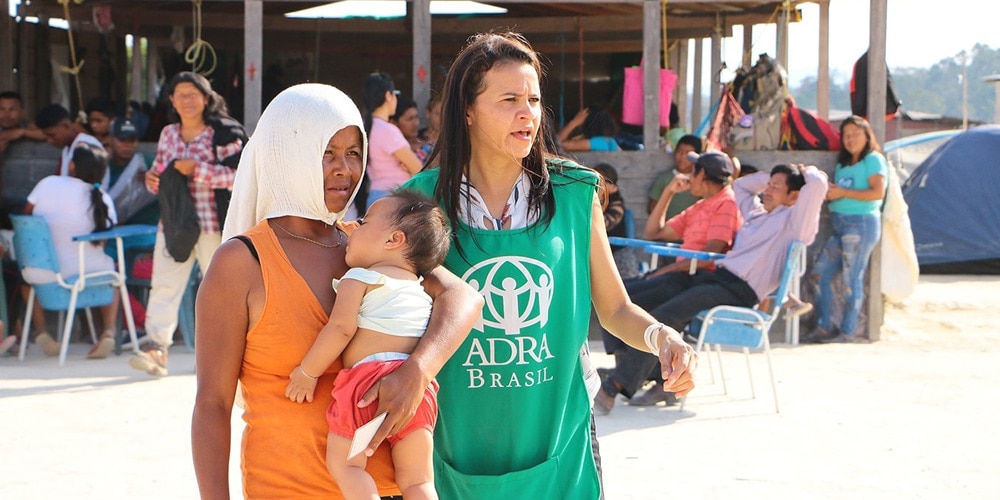
When the Venezuelan border with Brazil was closed in February 2019, blocking the humanitarian aid being sent to the Venezuelan people, many in the population revolted, especially those in border indigenous communities. Clashes with the Venezuelan army left many in fear and despair.
Hundreds of those residents, many of them Seventh-day Adventists, crossed the border into Brazil, where they were welcomed by local indigenous communities in the San Marcos, Roraima, area. According to local leader Aldino Alves, his community of 260 soon tripled in size. Now they have more than 1,000 locals and refugees living there, as they gear up for the arrival of many more.
“As soon as the conflict started, we received a request for help and began to assist people arriving,” Alves said. “Because we are of the same Taurepang ethnicity, with many Adventists on both sides of the border, communication and adaptation were not difficult.”
In partnership with the Brazilian army, the community has welcomed all those who manage to cross the border. Paracaima military base commander Antonio Vamilton shared what they are doing. “We are helping all immigrants, providing them with basic facilities, safety, and care,” he said. “And we are planning ways to give them the best support we can.”
Providential Help
With the significant increase in the population in such a short time, local residents soon ran out of food and accommodation options, community leaders reported. In response, the Roraima branch of the Adventist Development and Relief Agency (ADRA), in partnership with the Brazilian army and humanitarian organizations, collected hundreds of mattresses, blankets, and a ton of food. ADRA has also put together a volunteer team.
According to ADRA Roraima director Arlindo Kefler, it is the least they can do. “We have brought supplies to ease the hunger and pain they are feeling, so they can enjoy a minimum level of human dignity,” he said.
Marturino Pérez, one of the refugees, expressed appreciation for the assistance and support they are getting. “Thank you immensely for these donations, because we need a lot of help,” he said.
Local resident Luciana Gonçalves explained how she feels in being able to assist refugees. “It is a pleasure to help our Venezuelan brothers, because they are in need, so we must step up to help,” she said.
Alves shared that among the residents and the refugees there are many children, pregnant women, and seniors, both Brazilians and Venezuelans. “[In such circumstances], receiving assistance is a blessing from God, because it strengthens us and gives us the means to better help other refugees,” he said.
For Northwest Brazil Adventist Church president Gilmar Zahn, this aid is critical but much more needs to be done. “We are here with ADRA and the Brazilian army to distribute this first-aid assistance but also to assess the current situation,” he explained, “as we try to find means of helping all the residents of this community more effectively.”
Volunteers’ Testimony
José Lopes is a local Venezuelan who is not a church member. Lopes got acquainted with ADRA through a volunteer who invited him to go to church. He was invited to participate in humanitarian aid and saw in it an opportunity to do more for other people. “It was a call from the heart, and I resolved to heed this call,” Lopes said. “I am a Venezuelan, so I know how difficult things are there. There’s nothing better for me than being able to help my fellow citizens.”
About 20 volunteers left Roraima’s capital city of Boa Vista and traveled to Pacaraima to distribute supplies in the indigenous community. Many are not members of the Adventist Church but have accepted the mission of volunteering to help others.
According to Gizele Marques, one of the coordinators of the volunteer team, knowing that something can be done to ease the pain and suffering of the refugees motivates them to give from the heart. “By spending time with them, we realize they need all the help they can get, and I am not talking only about material stuff,” Marques said. “It has made a difference not only for them but also for us.”
The original version of this story was posted on the South American Division news site.